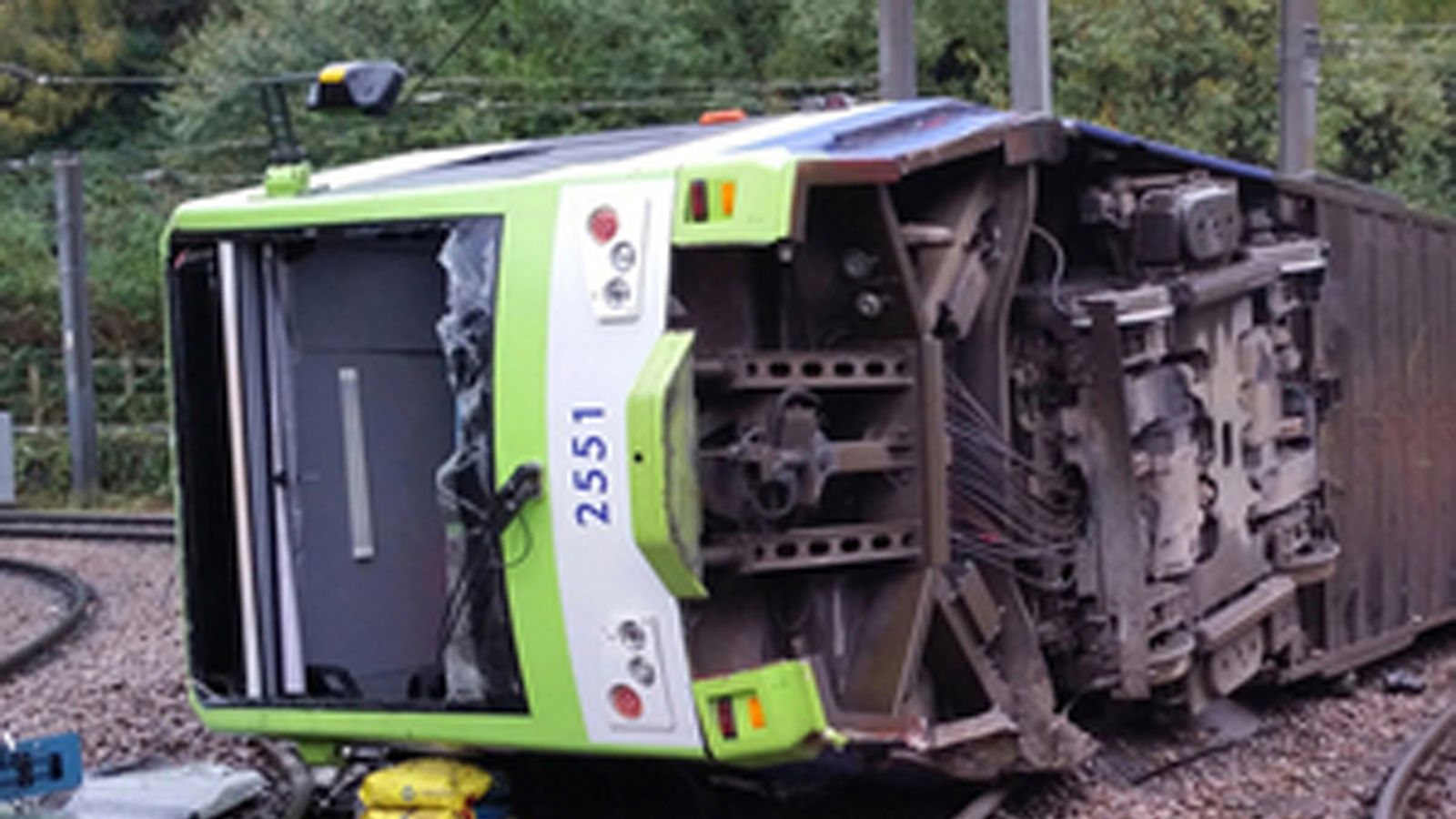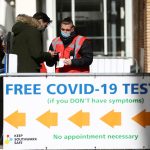The driver at the controls at the time of the Croydon tram crash in 2016 may have been in a “microsleep” when it happened, an inquest has heard.
Seven people died when the tram toppled over in south London as it approached a curve in the tracks at almost four times the speed limit, just after 6am on 9 November.
The driver, Alfred Dorris, was arrested but never charged.
Simon French, chief inspector for the Rail Accident Investigation Branch (RAIB), said that a “microsleep” can be triggered by a period of low workload that allows us to “switch off”.
Mr French showed jurors at the inquest, which began this week, a video reconstruction of the train overturning and sliding off the tracks.
He said survivors compared the accident – which left 51 people injured in addition to those who died – to being in a washing machine.
“It was fast and it was violent and it took place in a matter of seconds,” he said.
Mr French said that more speed limit signs or audio warnings might have helped prevent the crash. At the time of the accident, it was dark and the tram travelled through three tunnels before approaching a sharp bend.
The sign signalling the 20kmph (12mph) speed limit for travelling around corners was placed at the beginning of the curve and there were no such signs in the tunnels.
The tram hit the bend at 73kmph (45mph) and toppled over, sliding away from the tracks.
“At that sort of speed the tram is not going to be able to stay upright on this sort of curve,” Mr French said.
Dane Chinnery, 19, Philip Seary, 57, Dorota Rynkiewicz, 35, Robert Huxley, 63, Philip Logan, 52, Mark Smith, 35, and Donald Collett, 62, were all killed.
The jurors were told that all those who died had been thrown out of a window or door by the force of the crash.
Mr French said that this could have been prevented by stronger glass.
Mr French also explained how automatic braking systems could have stopped the accident.
“Human beings are not perfect,” he said.
“The control measures almost entirely relied on the driver’s route knowledge, and a belief that a level of training would protect against this particular risk.”
There was a previous incident just 10 days before the crash when a driver hit the same bend at 45kmph (27mph), almost overturning the tram, but the incident was insufficiently investigated, the jury heard.
Relatives of the victims attended the inquest, which is expected to last 14 weeks.
It was initially due to begin last October but was delayed due to the pandemic.






















